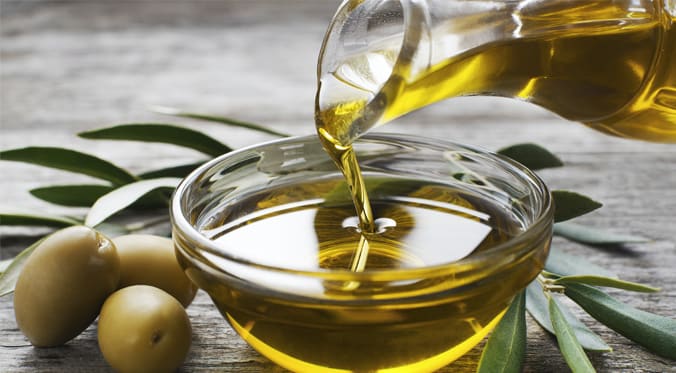The Benefits of Olive Oil

Nutrition advice has swung from low-fat to low-carb to high-fat in recent years, but Mediterranean cultures have known for centuries that olive oil is a sound basis for their diet. Wait, is fat good for you? The answer may be yes….certain types of fat, specifically, extra-virgin olive oil (EVOO).
EVOO is a cornerstone of the Mediterranean diet, which also emphasizes vegetables, fruit, nuts, whole grains, and legumes. We’ve got a pretty good indication that EVOO’s disease-fighting properties are pretty remarkable. Its benefits are mainly due to naturally-occurring compounds called polyphenols. (If you really want to get technical, note that scientists have identified key subtypes of these compounds in EVOO, tyrosol and hydroxytyrosol). Polyphenols are antioxidants: they “mop up” free radicals and other chemicals that react with our cells and cause the type of damage that can lead to cancer. Polyphenols are also anti-inflammatory. Long-term, unregulated inflammation is a root cause of many chronic diseases, including cancer. Through a variety of complex interactions in our cells, polyphenols help to lower unchecked inflammation. For example, one of the types in olive oil, called oleocanthal, has similar properties to ibuprofen.
What this means for people with cancer is an area for further study. The Mediterranean Diet, with its emphasis on olive oil and unprocessed whole foods, is associated with a lower risk of many types of cancer (including prostate cancer) and of death from cancer. Many laboratory studies have shown that treating cancer cells with polyphenols slowed their growth or caused them to self-destruct. Observational studies in humans suggest that higher olive oil consumption is linked to lower risk of cancer overall, and specifically breast and gastrointestinal cancer. More information is needed before specific recommendations can be made in cancer, but data from cellular mechanisms to laboratory studies to human populations appears promising.
Are you ready to start using EVOO to sauté your veggies and drizzle on your salad? (Yes, it tastes great, too.) At the market, you may see other types of olive oil. For maximal benefit, choose “extra virgin,” which is unrefined and has the most polyphenols. While EVOO is a processed food (through mechanical/physical methods only), it has so many beneficial properties that it made our list of 30 healthy foods.
Like most lifestyle changes, this is a long-term commitment: a single tablespoon of EVOO won’t suffice. Regular consumption over your lifetime may supply your body with a continuous, steady dose to potentially lower your risk of several diseases associated with aging. Try to get in the habit of substituting EVOO for unhealthy saturated fats (e.g., butter). Finally, you’re likely to get the greatest health boost from EVOO as part of an overall healthy lifestyle, including a whole foods diet, physical activity, and managing stress.









